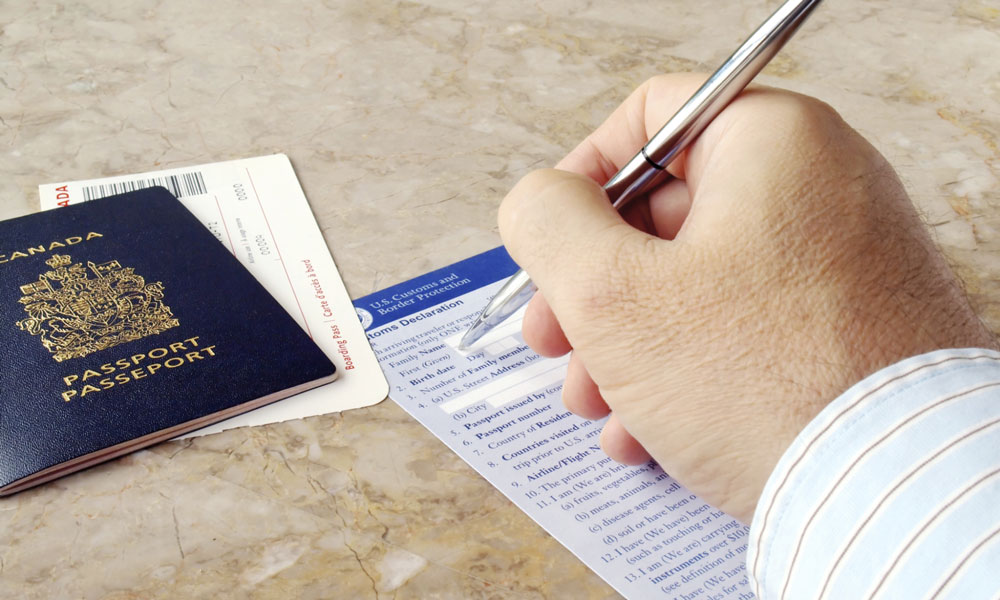
Visa Waiver Reforms Receive Mixed Reviews
The passage of last week's budget bill, which included changes to the Visa Waiver Program, was largely welcomed by the travel industry as a "common sense" approach to the issue. Globally, though, the reforms received a more chilled reception.
The passage of last week’s omnibus budget bill wasn’t closely watched just by charitable groups.
The travel industry was also keeping a close eye on it due to the passage of new regulations on the Visa Waiver Program (VWP), which became a hot potato in Washington, DC, last month, after the attacks on Paris drew attention to global terrorism concerns.
The budget bill effectively took measures put forth in a bill introduced by Rep. Candice Miller (R-MI) and folded them in as amendments.
The U.S. Travel Association, which had been wary of some of the proposed changes to the Visa Waiver Program, said that its members found the most recent changes palatable. U.S. Travel President and CEO Roger Dow noted that the move to go with the more sensible plan put forth by Miller will help to balance security needs with those of the travel industry as a whole.
“By adopting the provisions in Rep. Miller’s bill for the final omnibus package, Congress has demonstrated that it is indeed capable of bi-partisan, common-sense approaches to national security that embrace freedom over fear,” Dow said in a news release.
Airlines for America, another trade group affected by the decision, praised the visa-waiver bill after it had passed the House—before later being placed into the budget bill. A4A President and CEO Nicholas E. Calio said that the reforms help to “ensure the United States continues to play a leading role in working with other countries around the world to strengthen cooperation, improve intelligence sharing and accomplish our shared security goals.”
Another industry that was quick to applaud the bill’s passage was the biometrics industry, which is likely to benefit from tighter airport security. The International Biometrics & Identification Association (IBIA) noted that passengers are scanned through the Visa Waiver Program at the time of arrival at the destination, but there’s no similar requirement at points of departure. The bill helps remedy this issue.
“Screening of VWP passengers prior to departure provides substantial security benefits,” IBIA’s managing director, Tovah LaDier, said in a news release. “This proactive practice helps to identify terrorists and other criminals as early in the process as possible, stops them from boarding planes bound for the U.S., and prevents attacks on U.S. bound planes.”
Diplomatic Partners More Wary
The new regulations didn’t receive nearly as much praise beyond American borders. In particular, the European Union—perhaps the largest global beneficiary of the program—raised concerns about the decision to tighten security without working more closely with existing diplomatic partners.
“What we want to see is intensified cooperation, and consequently greater security, for both the United States and its allies,” wrote David O’Sullivan, the EU’s ambassador to the United States, in an op-ed for The Hill. “We want to work with the U.S. to improve information exchange regarding individuals subject of course to the appropriate constitutional protection.”
And the National Iranian American Council has raised concerns about the effect of visa waivers on Iranian citizens, given the requirement that any person who has visited Syria, Iraq, Iran, or Sudan since 2011 must take part in a consulate interview before being allowed to travel to the U.S.
“The piece of legislation is a clear example of institutional discrimination that will affect the Iranian American community,” researcher Michael Esfahani wrote on the council’s website last week. “By passing the provision, Congress is indirectly, and knowingly, barring Iranian Americans from their fundamental privileges as US citizens.”
While the country has faced numerous diplomatic problems with the U.S. over the years, a recent deal was put into place to lift sanctions on Iran. The law raised issues this week after Secretary of State John Kerry said that the visa-waiver rules could be ignored as part of the nuclear pact between Iran and the United States.
(iStock/Thinkstock)






Comments